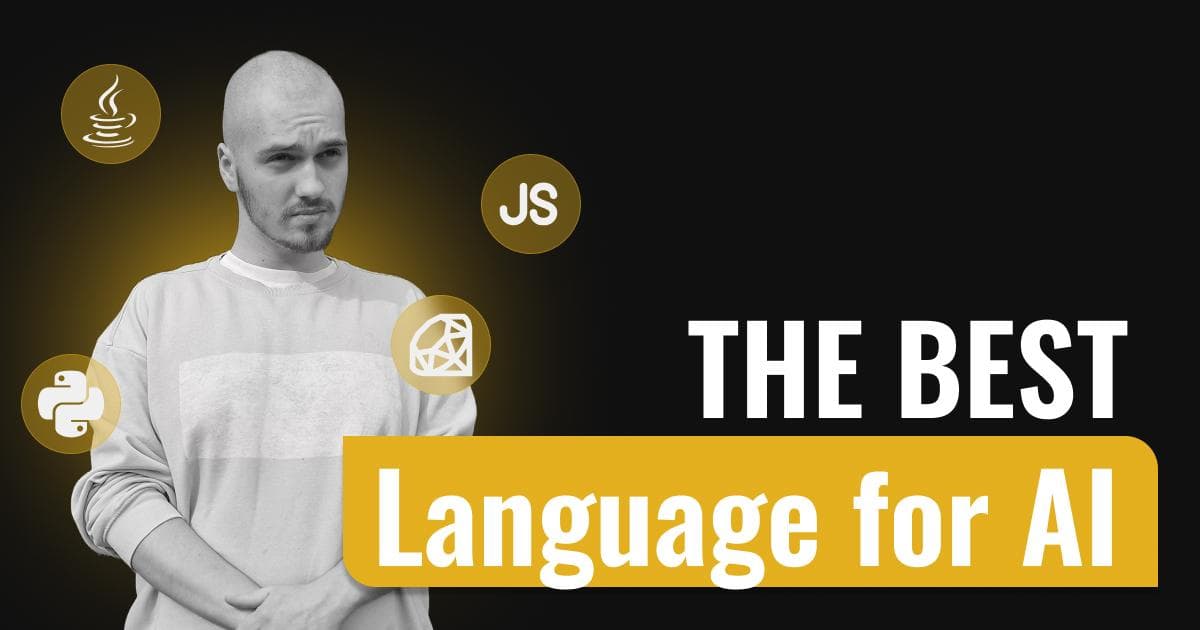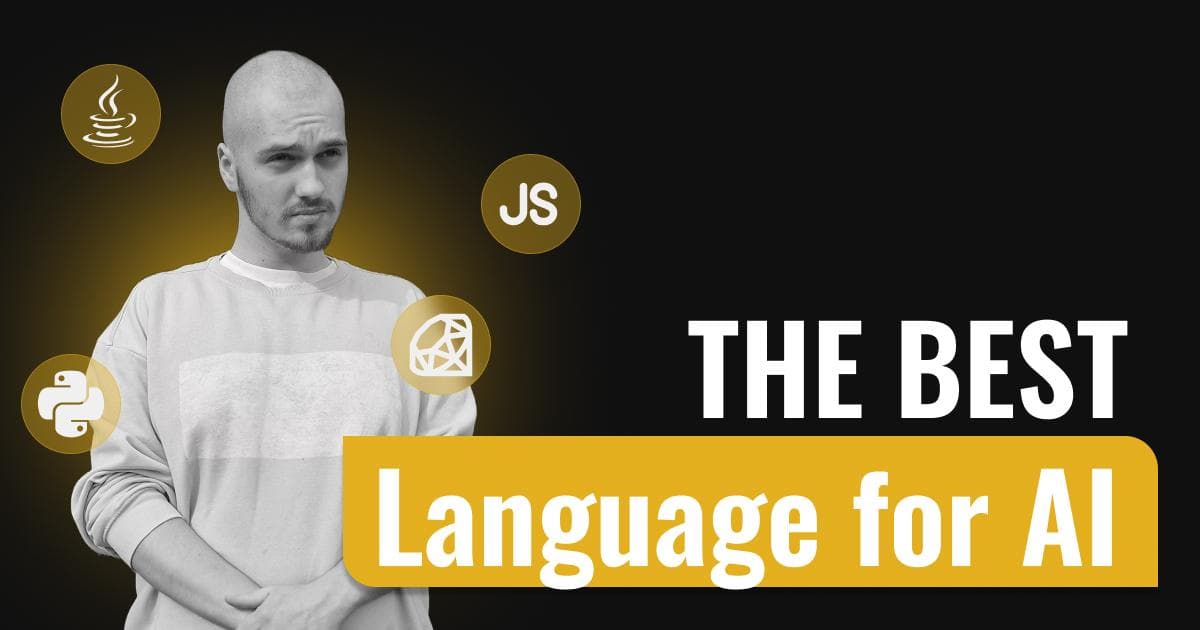What Programming Language Should You Use for AI?
Cezary Klauza
Created at 5/26/2025

Many of you have probably already come across tools that use AI to complete specific tasks. Or maybe you’re a developer who wants to start integrating artificial intelligence into your own applications? Whatever the reason you’re here — whether out of curiosity or real need — this article is for you. It’s designed to be universal and doesn’t require deep technical knowledge.
If you know what a “backend” is and you’ve heard of programming languages like Python, Node.js, or Ruby, you’ll feel right at home.
Is There One Best Programming Language for AI?
Let’s start with a simple question: is there such a thing as the best programming language for AI?

Well, the answer is simple — NO.
But hold on — if there’s no single best language for AI, then why write this article at all? Exactly.
The thing is: there are many ways you can integrate AI into your codebase, and how you want to use it determines which language will be the best fit for you.
How to Use AI in Your Codebase?
To use AI effectively in your codebase, you first need to think carefully about what exactly you want AI to do.

AI can analyze data, recognize patterns, predict user behavior, generate content, support decision-making processes, or automate repetitive tasks.
Before you start integrating anything, ask yourself:
Is AI meant to assist the user? Speed up internal workflows? Or optimize backend operations?
Only once your goal is clearly defined can you choose the right model, integration method, and define how much responsibility the AI should actually take on in your app.
So, which programming language works best for which situation?
Integrating with LLMs
If you want your users to chat with an AI agent — for example, one that can rephrase content, teach users how to use your app, or present your company’s services — it’s a good idea to use a large language model (LLM).
Models like ChatGPT, Gemini, or Claude are perfect for this.

Since these models come with well-documented APIs, you can technically use any backend-capable language. The best approach is to pick the language you already use — or the one your developers are most familiar with.
That said, most LLM providers offer ready-to-use libraries, especially for Python and Node.js, so those would be solid choices.
Languages like C, C#, Ruby, or even Java are also good options — but because scripting languages are faster to write in (especially when leveraging vendor-provided libraries), Python and Node.js tend to be more practical.
Integrating Your Own Models
If you plan to train and integrate your own models — meaning models you build and train yourself — then Python is the go-to choice.
Why? Because it has a rich ecosystem of libraries for building, training, and managing AI models. That’s why it’s the most popular programming language in the AI space.
That said, Python is sometimes a bit overhyped (though understandably so, since it dominates in machine learning and advanced AI workflows).
But truth be told — anything you do in Python, you can also do in another language. It might just take a bit more effort.
Should You Always Use Python?
Not necessarily! Python is not a hard requirement. In fact, only in specific cases will Python be truly necessary.
Yes, it’s true — Python handles AI integration and machine learning very well.
But here’s the thing I see all the time: someone wants to integrate an LLM into their SaaS or business app, and they’re looking specifically for a Python developer. Meanwhile, their entire app is built in Java or Node.js.

Creating a separate Python-based API just to build five endpoints that connect to external LLM APIs? That doesn’t make much sense.
In these situations, it’s best to consult a specialist — ask how they would approach it, and what they’d recommend.
And if you’re not a specialist in programming or AI (and you don’t need to be — nobody is an expert in everything), it’s okay to rely on someone else’s experience and judgment.




